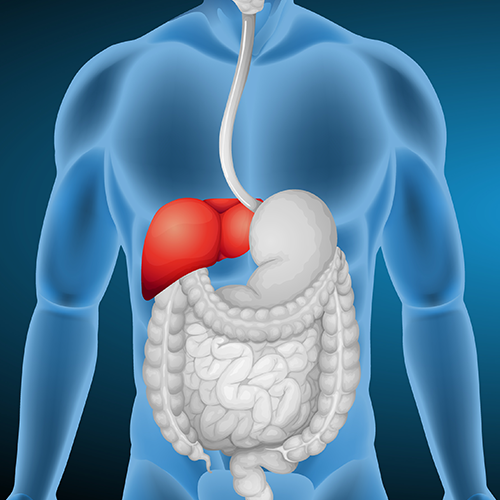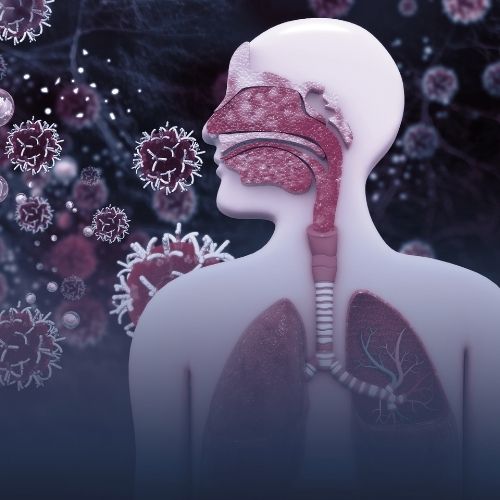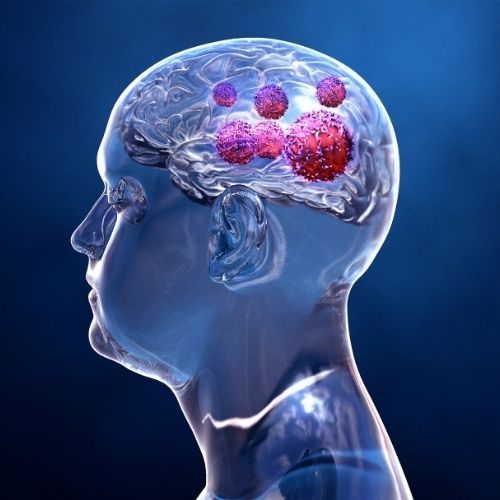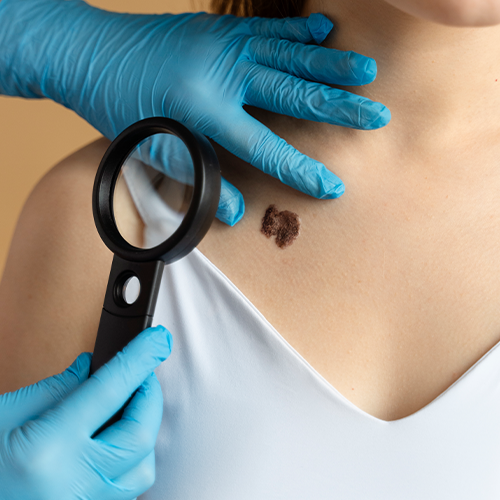What is Liver Cancer?
What is Liver Cancer?
Liver cancer progress without showing any specific symptoms. This causes the delay of determining the treatment planning. For this reason, liver cancer is one of the diseases that should be diagnosed at early stage. With the progression of the process, there are options such as liver transplantation or surgical removal of the tumor in the treatment of liver cancer shows symptoms such as loss of appetite, weight loss, fluid accumulation, weakness, abdominal swelling and jaundice. In this article, the definition, symptoms, causes, diagnosis and treatment methods of liver cancer will be discussed.
The liver is an organ that plays a significant role in our body. If the tumor is a malignant tumor originating from the liver’s own cell, this disease is called primary liver cancer. It is also known as hepatocellular carcinoma because it originates from liver cells. It is a life-threatening and common type of tumor. If you have a healthy liver, your risk of developing this cancer will be proportionally low. In particular, the patients with a liver disease, cirrhosis or people who are prone to cirrhosis have a higher risk of developing liver cancer. Early diagnosis of liver cancer, which is one of the most common types of cancer in the world, is of great importance in terms of the treatment course of the disease. Generally, surgical treatment is applied. The aim of the operation is to remove the tumorous liver cells, but since the functional competence of the liver decreases, it is difficult to remove the tumorous part. Liver transplantation is an important treatment method.
What are the Symptoms of Liver Cancer?
Liver cancer, which does not show any specific symptoms in early stage, usually reaches an advanced stage when it is diagnosed. The most common symptoms include loss of appetite, weight loss, fatigue, weakness, fluid accumulation in the abdomen, and jaundice. There may be pain in the upper right region of the abdomen. Cancer can be confused with each other because there are some other chronic diseases that have similar symptoms like cancer. Liver cancer is a common type of cancer in the world. It can be said that it is common in our country as cirrhosis-based. For this reason, patients with cirrhosis or patients who are prone to cirrhosis and those have chronic hepatitis should be monitored in regular intervals, in terms of the possibility that it may form into a mass. These examinations should be followed, and patients should be careful in this regard.
What Cause Liver Cancer?
Causes of liver cancer include hepatitis B, C and D virus infections, cirrhosis, chemicals such as nitrite, genetic congenital metabolic diseases, aflatoxin, hemochromatosis, Wilson’s disease and glycogen storage disease. This organ, which has great importance for our body, affects all systems and is an important element of the blood reservoir and the body’s defense system. The group with the highest risk for liver cancer is individuals with hepatitis virus. In the paragraphs above, we emphasized that the early diagnosis of liver cancer is unlikely due to its insufficient symptoms at early stage. Apart from this, people with cirrhosis should also take extra care. Cirrhosis is a disease that occurs as a result of damage to liver cells due to the reasons such as hepatitis, immune system problems and alcohol. People with hepatitis B and C are at higher risk of cancer than people are not at risk. Hepatitis B is a preventable infection within the scope of vaccination. Recently developed treatments for hepatitis C have produced positive results. Obesity is also in the risk group because it can trigger fatty liver and cirrhosis.
How is Liver Cancer Diagnosed?
Liver cancer, which does not show many symptoms in the early stages, begins to develop symptoms such as weight loss, fluid accumulation, loss of appetite, constant weakness, abdominal swelling, and jaundice. Individuals with such complaints should go to a health center and consult a doctor immediately. With today’s developing technology, it is possible to monitor every movement and development in the liver. In particular, individuals at the risk group should have their controls done with ultrasonography, which is an easy method. Other methods such as magnetic resonance (MR), computed tomography (CT), angiography can also be used to obtain definitive views during diagnosis. Tumor markers can be used on the blood. For example, alpha fetoprotein (AFP) can be used as a marker and evaluations can be made according to the results of this test. One of the diagnostic methods used in some cases is the needle biopsy. This method that is used infrequently, is decided by the specialist doctor to use after the required observations are made.
How to Treat Liver Cancer?
The results of liver cancer, whose treatment cannot give what is expected, are reflected in the tables quite negatively. The most effective method applied in liver cancer is surgical removal of the tumor. In order to perform the surgical operation, the stage of the tumor and whether it has spread to its surroundings are checked. Apart from this, if the patient has liver disease, the degree of the disease is important. If it has been metastasized outside the liver, whether a surgical operation will be performed is evaluated on a case-by-case basis. The success of the surgical operation is also related to the tumor size. Those shorter than 5 centimeters in diameter have a higher survival rate than those taller than 5 centimeters. In cases where surgical procedure cannot be performed, methods such as chemotherapy, radioembolization, chemoembolization, radiofrequency ablation, alcohol injection can be applied by specialists. In appropriate cases, they can also be used in conjunction with the surgical procedure. The important point that has to be considered in the surgical procedure is that the remaining liver after the removal is of sufficient size and function to continue its life in a healthy way. If the tumor has undesirable criteria, the ideal treatment is liver transplantation. The recurrence rate of the tumor after transplantation is quite low.
Liver Ablation
Although ablation means burning treatment in general, there are basic rules about lesion size and number in practice, there are exceptions. This treatment can be done using different energy sources and methods. In long-term practice, the main treatment methods can be divided into thermal, in other words, heat-related or non-thermal, in other words non-heat-dependent.
The main methods are;
- Percutaneous ethanol injection, non-thermal technique – a needle is inserted into the lesion and alcohol is injected. The use of this method has decreased lately.
- Radiofrequency ablation, high temperature ablation
- Microwave ablation, high temperature ablation
- Cryoablation
- HIFU, high-intensity, focused, ablation with sound waves
- IRE, ablation with irreversible electrical energy
Although radiofrequency ablation is the most frequently used technique among the treatment methods of liver tumors, there has been a significant increase in the preference of microwave ablation method recently.
Radiofrequency ablation
Radiofrequency (RF) ablation method is the transformation of the current given by the needle into heat energy in the tumor tissue, resulting in the death of the mass. As with any treatment, this one also has limitations and risks. This method, which is generally performed by thermal conduction, can be limited to drying and burning of the tissue. In the presence of a vessel close to the tumor, ablation reduces its effectiveness. The duration of the process can be extended by lowering the heat level. The use of grounding pads is essential and radiofrequency ablation causes skin burns when not in use.
Microwave Ablation
Microwave ablation is a thermal treatment method and is widely used in liver tumors. This method has recently started to be applied in liver tumors in our country. It can be applied directly to the skin (percutaneous) and laparoscopically, as well as used in open surgery operations. In the application of this method, needles and generators called MWA are used. The region that is planned to be burned before the procedure is determined by the doctor. Values are adjusted according to this dimension. It is based on the transfer of kinetic energy, which occurs as a result of the energy applied to the water molecules in the tissue and the collision of the molecules with each other, to heat energy.
Radiosurgery
It can be applied to patients who do not respond to systemic or local ablative treatments.
How to Prevent Liver Cancer?
Many factors that cause liver cancer have been mentioned above. However, hepatitis viruses are also a factor that can cause liver cancer. In order to prevent cancer, it is necessary to be protected from hepatitis viruses. Vaccination against the hepatitis B virus, which is a type of hepatitis that is vaccinated, should be done before it is too late. Alcohol consumption, which causes great harm in the body, is also a cause of cirrhosis. For this reason, it is necessary to avoid alcohol consumption for liver health. Having a regular and healthy diet will also reduce the risk of diabetes and obesity. In this way, the risk of fatty liver and cancer that may occur together will be kept in a minimal level. In addition, having an active sports life will be greatly beneficial for both liver health and general body health.
Finally, the liver is just one of the key organs of our body. For this reason, it is an organ that needs pay extra attention. If you have one of the symptoms of liver cancer mentioned above, you should apply to health centers where personalized treatments and the latest technology are applied. Nowadays, instead of protocols where the same treatments are applied to everyone with the logic of “one size fits all”, that is, “what if it fits”, personalized treatments should be applied. This approach will increase both your treatment success and the quality of your life after treatments.
It is also important for life to perform regular health screenings since liver cancer does not show clear symptoms. Simple blood tests and ultrasound can be lifesaving for you. Click here to contact us.








